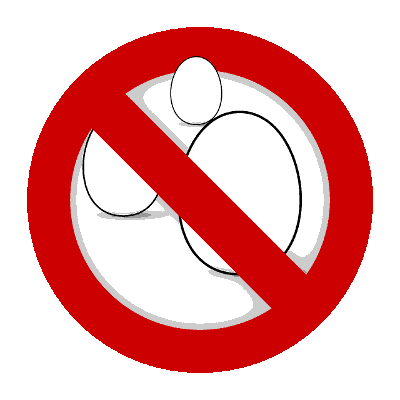Hühner nicht liegen

Sie benötigen ein wenig Wissen, bevor Sie in intelligenter Weise antworten können oder nicht. Wenn Sie das Problem nicht verstehen, wie könnten Sie das Problem möglicherweise beheben?
Winter
Ein Grund, der dazu führt, dass Ihre Hühner anhalten oder die Eierproduktion reduzieren, ist einfach die Jahreszeit. Während der Winter hören die Hühner auf, Eier zu legen, weil sie nicht genug Tageslicht erhalten. Dies ist eine natürliche genetische Reaktion und zeigt nicht an, dass Ihre Hühner etwas stimmt. Der Winter ist keine gute Zeit für die Reproduktion von Hühnern, sodass die Natur die Hühner einfach reguliert, um keine Eier zu produzieren, wenn die Küken wenig überlebensweit hätten.Es gibt also nichts, was korrigiert werden muss. Nichts ist gebrochen, zumindest deutet dies nicht an, dass etwas falsch ist. Möglicherweise möchten Sie jedoch, dass Ihre Hühner im Winter weiterhin Eier produzieren. Sie möchten vielleicht, dass sie je nach Ihrer Lebensmittelsituation im Winter mehr produzieren. Die Antwort ist einfach, es kann so einfach sein oder nicht.
Diese 2-14-stündige Regel ist keine Magie. Es ist nicht schwer und schnell. Es hängt vom Huhn ab, es hängt von der Rasse ab. Und dieser Mechanismus schaltet nicht wie ein Lichtschalter ein und aus. Eine Herde insgesamt wird langsam immer weniger Eier produzieren, bis er auf Null reduziert wird. Wenn Sie also verfolgen, wie viele Eier produziert werden, können Sie Entscheidungen darüber treffen, warum und was Sie dagegen dagegen tun werden, wenn überhaupt.
Age
Chickens lay most of their eggs the first 2 to 3 years of age. But this cannot go on forever. Your chickens can be as healthy as possible and live to be over ten years of age. However, that will not result in them laying more eggs. Why? Because when a chicken hatches they have roughly 240-300 eggs already in them. This number is fixed and good health will not increase this number. Once their eggs are all laid that is it. This usually happens where the hens egg production is strong and then tapers off to nothing.Diet
Now on to the more troublesome reasons that your hens have stopped or slowed egg production and diet is at the top of the list in a SHTF situation where store bought high quality feed is not an option.Poor diet can cause the egg production to drop quickly. We are talking days not weeks. A chicken can have a full belly, but still not be healthy enough to produce eggs regularly. As with any animal a chicken requires certain things for them to be healthy. If something is lacking such as protien or minerals the chicken will stop laying and direct those meager resources to the hens own body and wait from conditions to improve before again producing eggs regularly.
So if your chickens stop producing try to incorporate more protein in their diets. Lack of minerals and calcium is less likely to have the same effect. Usually it will result in thin shelled eggs that break easily instead of the hen not laying in the first place.
Water
No water means dead chickens. Obvious right! But it is important to keep in mind that the chickens need water throughout the day and not just when they are in the chicken coop at night. So keep this in mind. Luckily it is an easy fix.Broody Hen
A broody hen means that the hen wants to hatch her own chicks, so she will sit on top of her eggs until they hatch (usually 21 days). During this 21 day period she won’t lay any eggs and this is not what you want.There are obvious signs to look out for if your hen is turning broody. Watch for her sitting on the nest all day. Watch for her guarding her nest and even the removal of some of her breast feathers. This is done to better incubate the eggs.
If you are looking to expand your flock then this is good. But otherwise it is a behaviour that must be controlled. It will influence the other chickens and can get out of hand quickly.
Prevention is worth a pound of cure! So to prevent this always remove the eggs from the nest as soon as they are laid. And once eggs have been laid evict the hens from the nest box and do not allow them back in.
Once you have lost that battle you will have to break the hen or kill it. Here is what you need to do to fix this issue with a broody hen. Remove her from the nesting box and provide a distraction like food. If she goes back to the nest, remove her again and block access to it completely.
Be sure to make her roost on the roosting branches and not allow her back in the nesting box.
Disruption
Temporary disruptions to the chickens routine can cause them to stop laying. Disruptions can be as simple as new additions to the flock or a big change in surrounding, etc.! A little time is all that is needed to remedy this situation.Illness
If a chicken is sick, then it is not going to be a very productive egg layer. Refer to the chicken doctor links to address these health issues.Decision Time
When your chicken stop producing, say from age, you have a decision to make. To cook or not to cook. There are reasons to keep a chicken around that isn't laying.Older hens are great bug catchers. They can help control weeds in your garden. They are better at watching for predators. They produce fertilizer for your garden. They are better broodies and better mothers!
Hopefully this article can guide you to the right decisions with your flock.

